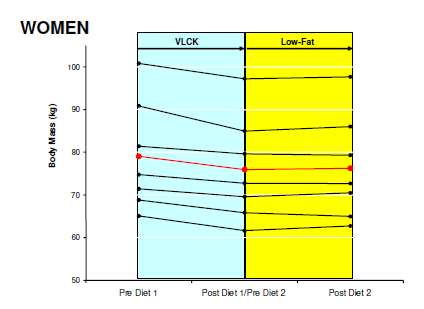There is a 2012 study (www.ncbi.nlm.nih.gov/pubmed/22735432) that compared the effects of low fat and low carb diets on metabolic rates and found that:
Compared with the pre-weight-loss baseline, the decrease in REE was greatest with the low-fat diet (mean [95% CI], -205 [-265 to -144] kcal/d), intermediate with the low-glycemic index diet (-166 [-227 to -106] kcal/d), and least with the very low-carbohydrate diet (-138 [-198 to -77] kcal/d
An earlier 2004 study by Volek (https://www.ncbi.nlm.nih.gov/pubmed/15533250) comparing low-fat and low-carb diets showed:
Absolute REE (kcal/day) was decreased with both diets as expected, but REE expressed relative to body mass (kcal/kg), was better maintained on the VLCK diet for men only [emphasis added].
So, the slow down from keto is not as large as with low-fat diets, but keto is not entirely protective. I’m not sure if either study accounted for the initial increase of metabolic rate on keto diets. In that case, the total delta might be about the same, but you end up in a better position on keto.
Obviously, there are other metabolic advantages from low carb diets, such as the initial increase in metabolic rate (a 2013 study–https://www.ncbi.nlm.nih.gov/pmc/articles/PMC3826507/ – suggests as much as 400-600 calories of increased burn, just from the body’s work to create glucose) or the increased ability to burn fat triggered by lower insulin. All good things that put one in a better overall position regarding ability to lose fat and keep up metabolic rate. But not completely protective of metabolic rate.



